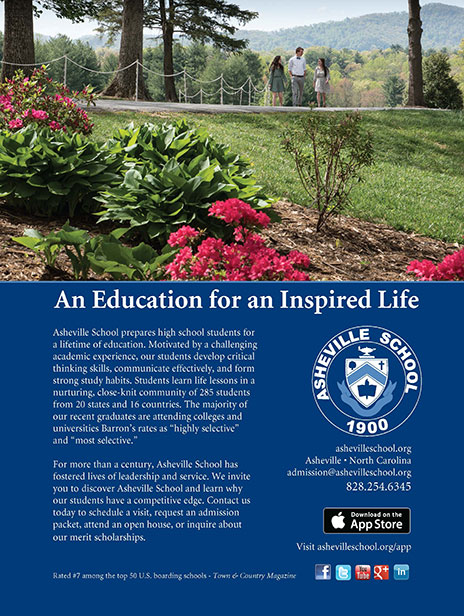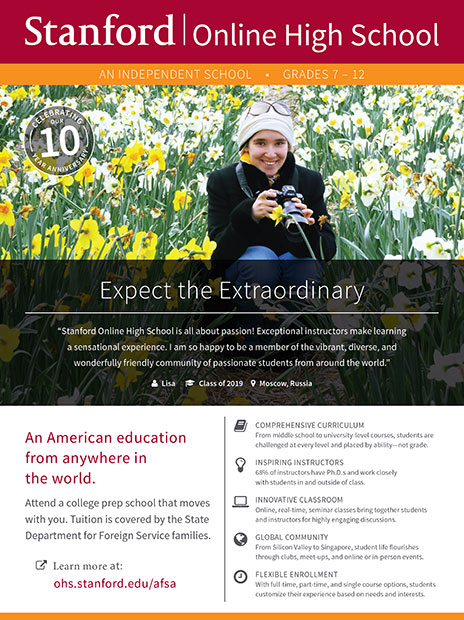Finding Money for College: A Guide to Scholarships
Scholarships can lighten the financial burden of a college education. Here are some tips on finding them.
BY FRANCESCA KELLY
Paying for college in the United States can be a herculean task. But some of the burden can be reduced with scholarships. Unlike loans, scholarships and grants are gifts—and a gift is always better than a loan.
The best source of funding—“inside” funding—comes in the form of merit scholarships and need-based grants from the colleges themselves. These are often renewed each year, as long as you keep your grades up and have no disciplinary problems while in college.
Merit-based scholarships are awarded based on grades, test scores and other achievements. If a college really wants you to attend, you will often get a letter announcing a merit-based scholarship long before the usual April 1 acceptance notification, as those are not based on financial need.
It pays to research colleges with large endowments that can afford to give out more money, as well as the many excellent private colleges that are less selective than the “top tier.” They often generously award students who rank in the top 25 percent of their high school class.
Need-Based Aid
Need-based financial aid is a different story. But it’s worth reviewing the basics of this, because there is increasing overlap in the forms required for both need-based and merit assistance.
To be considered for federal aid, the student must submit the Free Application for Federal Student Aid. The FAFSA determines eligibility for need-based aid, which is generally awarded in a combination of grants and loans, often administered by the federal government, such as Pell Grants or Stafford Loans.
Previously, this form was not available until Jan. 1, creating challenges for students and schools trying to connect admissions decisions and financial aid decisions. Starting this year, the FAFSA became available on Oct. 1 and requires the previous year’s tax information (2015), which should alleviate delays in processing federal aid decisions.
Once you submit the FAFSA, you almost immediately receive a number for “Estimated Family Contribution” (the EFC), which serves as a guide for what you can expect to receive in need-based financial aid.
Actual financial aid packages vary from school to school and will be sent to you with your acceptance letter or shortly thereafter.
If you decide to apply for outside scholarships, treat the process as a part-time job, starting well before senior year.
Other Sources of Funds
There are many additional, private (“outside”) sources for scholarship money, including a few that are geared specifically to dependents of Foreign Service employees. However, there are some things to keep in mind about outside scholarships.
Once you have received a need-based financial aid package from your college, you are required to report any outside scholarships to the financial aid office. Expect your financial aid package to be consequently reduced.
When this happens, many colleges try to reduce your loans before they reduce grant money, but make sure you are aware of each of your chosen colleges’ financial aid policies if you plan to apply for outside scholarships. If you submit multiple private scholarship applications, it’s possible to win enough money to eliminate your loans and even cover most, if not all, of your college expenses.
If you are not filing the FAFSA (i.e., not applying for need-based aid), then any scholarship funds you win from outside sources are yours to apply toward tuition costs as you see fit. There are some exceptions to this; but generally, if you are not a financial aid recipient, you do not have to report scholarships to your college.
Speaking of exceptions—many colleges ask you to submit the FAFSA to be eligible for their merit-based scholarships. It’s not logical, but it’s also not a bad idea: even if you are comfortable now, your financial circumstances could change, and some colleges make it difficult to request financial aid later if you enrolled initially without it. This is why experts often encourage everyone to file the FAFSA, whether they believe they need aid or not.
An increasing number of schools also want to see your CSS Profile, or College Scholarship Service Profile, when considering school-based financial aid. So make sure to check whether or not you need to submit this financial aid form, developed by the College Board, as well.
Bottom line: check with each of your colleges to be sure of the details of all of their financial aid policies.
To Get Started
The following list contains just a few of the many resources available to you for finding scholarships. There are scholarships and tuition credits available based on GPA, SAT and ACT test scores; state residency; IB diploma; career and major choices; being a military or Foreign Service family member; doing volunteer, charitable and church work; knowing a foreign language; through a parent’s private employer; and more.
There are also very specific, often downright odd scholarships: for very tall people or very short people, for example. Or for golf caddies (http://www.wgaesf.org/). There’s even an “AFSA” scholarship that has nothing to do with the Foreign Service—that AFSA scholarship comes from the American Fire Sprinkler Association (www.afsascholarship.org).
Unlike loans, scholarships and grants are gifts—and a gift is always better than a loan.
If you decide to apply for outside scholarships, treat the process as a parttime job, starting well before senior year with your research, and taking careful note of deadlines. Do your homework, find the scholarships that you’re most likely to win, and apply early and often!
Here are some resources to get you started.
Free Application for Federal Student Aid (FAFSA)
Common wisdom is to submit the FAFSA even if you think you don’t qualify for aid. You may be pleasantly surprised to find you qualify.
www.fafsa.gov
College Scholarship Service (CSS) Profile
This financial aid application, run by the College Board, is required by almost 300 private colleges in order to consider you for any assistance.
www.css-profile.com/
AFSA
At the American Foreign Service Association’s scholarship Web page, you can find detailed information on how to apply for an AFSA scholarship, as well as a wealth of resources on financial aid, college admissions and other educational advice.
www.afsa.org/afsa-scholarships
U.S. Department of State
The State Department’s Family Liaison Office maintains a page on scholarships and financial aid for Foreign Service dependents, including scholarships from AFSA, the Associates of the American Foreign Service Worldwide (AAFSW), the Foreign Service Youth Foundation, Clements Insurance, and links to Defense Intelligence Agency and other foreign affairs agency-sponsored scholarships. You’ll also find helpful information on financial aid, educational travel and other processes unique to the Foreign Service.
www.state.gov/m/dghr/flo/c21963.htm
FastWeb
One of the first scholarship websites and still one of the best, offering lists of targeted scholarships based on your talents, a system of scholarship deadline alerts and a cautionary section on scholarship scams.
www.fastweb.com
Unigo
This website was started by Jordan Goldman, a Wesleyan University graduate and one of the students profiled in New York Times writer Jacques Steinberg’s 2002 book about the college admissions process, The Gatekeepers. Unigo has grown from a review site of about 100 colleges to a huge resource for scholarships, and also offers its own scholarships as well as featuring others.
www.unigo.com
Scholarships
A comprehensive site that crossreferences scholarships by categories such as Minority Scholarships, Veteran Scholarships and Scholarships by Major. They also offer college search functions. Be sure to check out their scholarships listed by state.
www.scholarships.com
There are also very specific, often downright odd scholarships.
Cappex
Cappex provides a free scholarship match service and helps you find scholarships from everywhere: private foundations, corporations, charities and hundreds of colleges.
www.cappex.com
Finaid
This site explains financial aid very well. Be sure to look at their clear explanation about reporting outside scholarships to your college if you are a needbased financial aid recipient.
www.finaid.org
Do It Yourself College Rankings
College admissions expert Michelle Kretzschmar has an unusual approach to college admissions, including ways to calculate the most affordable colleges, as well as those that admit more than 50 percent of their applicants. Her site, filled with charts and data, and her blog, is worth a look.
www.diycollegerankings.com/
Books
Although there are books that claim to give you an edge in finding scholarships, the most up-to-date information on scholarships is available free on the internet through websites like the ones above. However, for those who like to get their information in book form, here are a few recommendations to supplement (not replace) your internet research.
The Financial Aid Handbook: Getting the Education You Want for the Price You Can Afford, Carol Stack and Ruth Vedvik (The Career Press, Inc., 2011).
This is an excellent overview of the entire financial aid process, of which scholarships are just one part. For clear explanations of the FAFSA and the CSS Profile, and a knowledgeable discussion of some strategies for getting an affordable education, this book can’t be beat.
Confessions of a Scholarship Winner, Kristina Ellis (Worthy Publishing, 2013).
While the author offers mostly common-sense advice about earning scholarships through plain old hard work, her story is inspirational and might be just the thing to get you motivated. When her widowed mother told her there would be no money for college, Ms. Ellis grew determined to earn all the money she would need to completely pay for four years of college—and she accomplished that goal.









